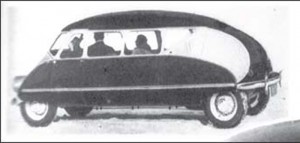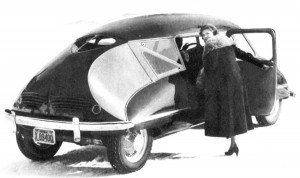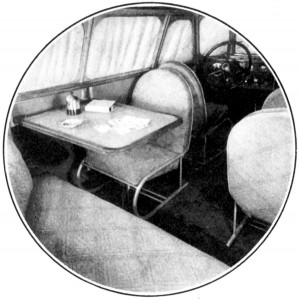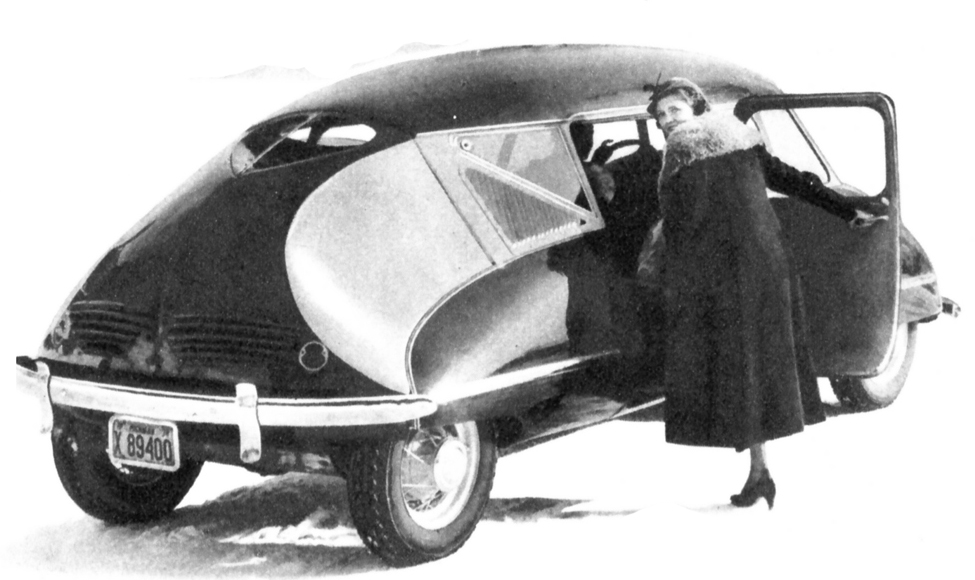
A side view of the new Stout auto, showing the beetle-shaped design and the driver’s seat placed over the front axle.
Reprint Modern Mechanix and Inventions, March 1935
The most startling and revolutionary evolution in modern automobile design is revealed in this preview of the new “Scarab”, designed by William B. Stout.
Ultra streamlined, with an engine mounted in the rear, the driving mechanism over the front axle, and an interior designed like a room in a house, the most revolutionary development in the history of automobile construction was presented to the American public for the first time February 1.
The new car is the Scarab, designed and produced by William B. Stout, famous Detroit airplane engineer who designed the first all-metal airplane and the Ford Tri-motor transport ship.

The floor of the new auto is set to the level of the running board, permitting entire elimination of the running boards and allowing five inches of extra overhead room within the “living room.”
It follows the latest in aero-dynamic design with long windows extending from front to rear to permit clear vision. Fenders and running boards are eliminated; the body of the automobile encloses the wheels.
Following the principles of stress analysis which he propounded in the October, 1933 issue of Modern Mechanix and Inventions, Stout has incorporated the body and chassis into one, setting them over a frame of alloy steel tubing after the fashion of an airplane fuselage. The body is suspended below the center of gravity to eliminate “roll,” making it possible to dine or plane cards while the car takes corners at high speed.
The floor of the Scarab is lowered to running-board height. Each wheel rides on an individual shock absorber, huge coil springs equipped with oil cylinders, extending from the wheel to the lower winder lines. They combine with the year-mounted engine to provide a cushioned shock in collisions.
A build-in lounge and table feature the “living room” interior. The driver’s seat is the only one that cannot be moved. The other two can be placed as desired.

A view showing the elaborate interior of the Scarab. In the rear are two movable chairs, a lounge, and a collapsible table. High speed will not jar ash tray on the table.











